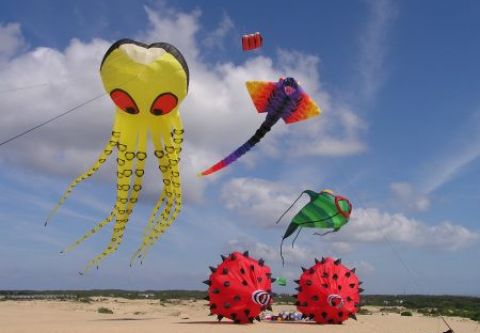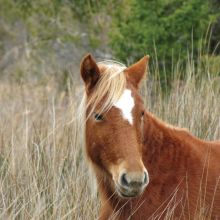
The wild Banker horses are the most popular attraction on the Northern Outer Banks. Whether you are on a guided wild horse tour or seeking them on your own, you can see them in their natural habitat in the 4WD area north of Corolla, with two important conditions: You must stay at least 50 feet away from the horses and never, ever feed them.
But here’s a little secret: If you wanted to get closer to the fabled wild horses than your binoculars or camera lens allow, you have the opportunity to approach and even touch rescued wild horses at the Corolla Wild Horse Fund’s Betsy Dowdy Equine Center in Grandy! The 31-acre farm and rescue facility is home to more than 20 rescued Banker horses who can no longer live in the wild due to illness, injury or other causes. The wild horses are slowly domesticated so that they can live at the center forever or be adopted.
Corolla Wild Horse Fund (CWHF) welcomes visitors at the Betsy Dowdy Equine Center. In the summer months they hold weekly educational Mustang Mornings on Wednesdays. This gathering includes a screening of filmmaker Jerry Thompson’s award-winning 30-minute documentary The Secret of Corolla, which explores the history and lives of the Banker horses. CWHF also offers a structured Q&A session to help further understanding of the wild horses and how we can help protect them for years to come.
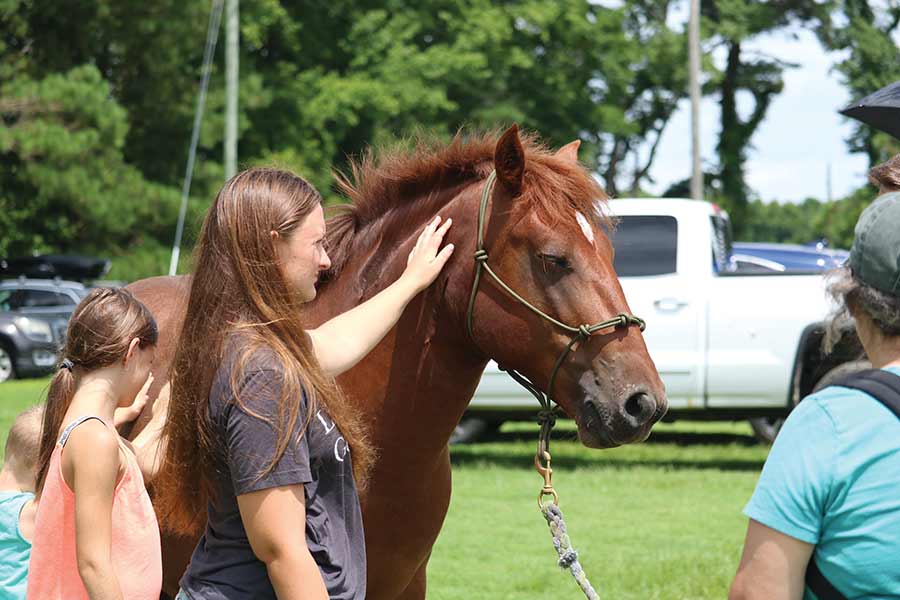
CWHF is a nonprofit organization that depends on support from the public to care for the horses. That care includes food, shelter, training and veterinary care for the horses at the farm as well as providing over sight, occasional care and habitat protection for the horses in the wild.
Contrary to popular belief, 85 percent of the necessary funds come from a caring general public, as CWHF does not receive federal or state funding. The Corolla wild horses are not living within a state or national park like those farther south on Shackleford Banks.
CWHF directly benefits from regular or gifted horse sponsorships and offers many opportunities for people to become members and pledge donations as well as to sponsor horses. Other inventive ways to give include the Land Preservation Initiative, in which donations are applied toward habitat conservation. CWHF also has a museum and gift shop in historic Corolla Village for those who want to dive deeper into horse history or purchase souvenirs, with all proceeds going to the horses.
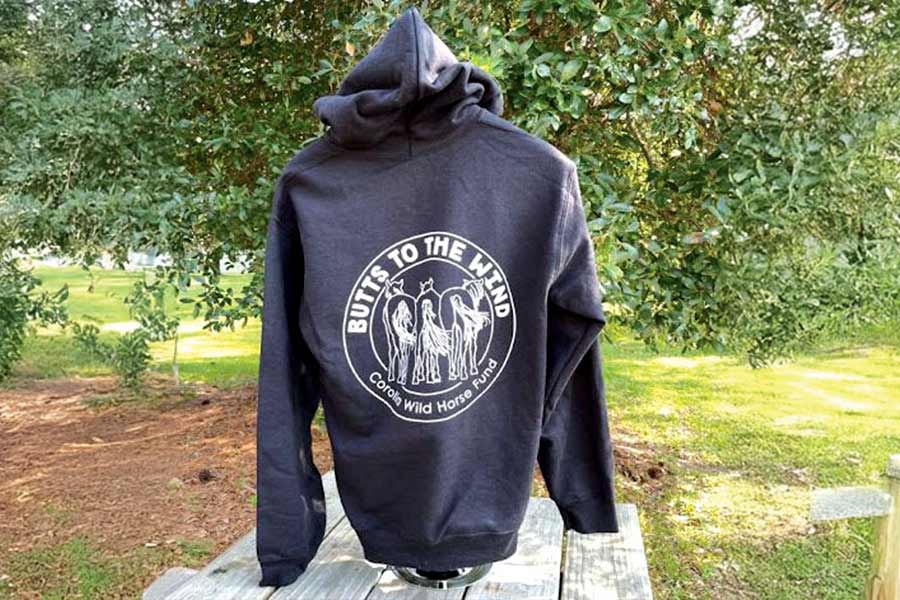
Protecting Wild Horse Habitat
With the popularity of the 4WD area ever-increasing and the proposed Mid-Currituck Bridge potentially making the area easier to access, residential development will likely expand in upper Corolla and Carova where the Banker horses have lived for centuries. Currently the 120 wild horses roam 7,700 acres, including the Currituck National Wildlife Refuge, which was officially established in 1984 under the protection of the U.S. Fish and Wildlife Service. The wildlife refuge protects some of the horses’ habitat from development, but not all of it.
The wild horses are not safe from harmful human interactions, and for that reason CWHF is working on preserving an additional 1,700-acre corridor of continuous open property.
“We have a strategic vision that would take land out of development primarily through conservation easements,” says CWHF CEO Chris Winter. “We’ve identified an 11-mile corridor of land west of the oceanfront from the pavement to the Virginia border, west of Ocean Pearl Road.”
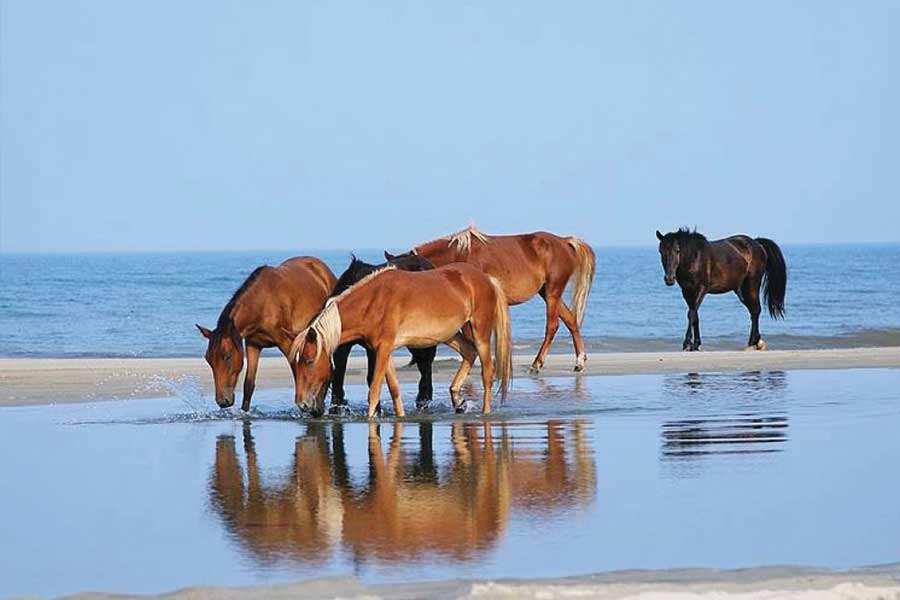
As explained on the CWHF website, this corridor was identified using detailed data collected by the fund on horse movement and grazing patterns, herd dynamics and behavior, and utilization of habitat areas by the horses at different times of the year.
“Habitat preservation and breed conservation are at the forefront of everything we do – one can’t exist without the other,” says Director of Herd Management Meg Puckett. “The horses are intrinsically tied to their habitat. They’re what’s called a landrace breed, meaning they have developed both physical and behavioral adaptations that allow them to survive in this very unique environment. These characteristics are not seen in any other breed of horse. They also have deep-rooted cultural and historical ties to our region.”
Fortunately, these CWHF conservation efforts are consistent with the Imagine Currituck Vision 2040 land-use policy for the off-road area to protect natural resources, open space, wildlife habitat and biodiversity through conservation methods.
Over the next several years, with our help, CWHF will be working on taking the 11-mile stretch of land out of development and hopefully preserving it in perpetuity. To donate to the cause, go to corollawildhorses.org/land-preservation-initiative.

Meet the Horses
Spring and Summer Events at the Betsy Dowdy Equine Center
Spring Open House
Saturday, April 26 10 a.m. to 2 p.m.
Mustang Mornings
May 28 to August 27
Wednesdays, 10 a.m. to 2 p.m.
Suggested $10 donation per car at the gate
corollawildhorses.com
102 Young Rider Lane, Grandy
Follow on Facebook & Instagram

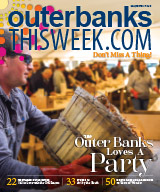
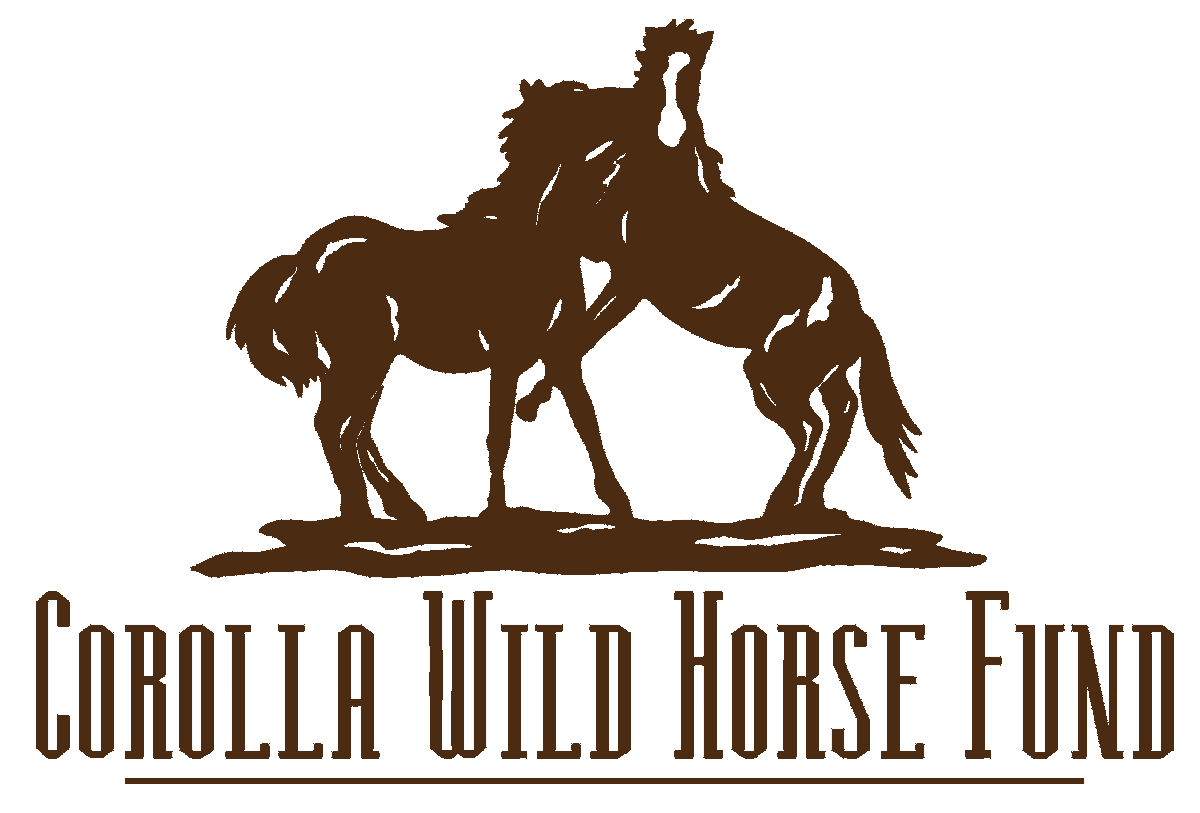
 Gabrielle Giannone is a contributing writer for OuterBanksThisWeek.com. She moved from Virginia to the Outer Banks in early 2023. Outside of writing and exploring the area, she is a server at three local restaurants and a fine art painter.
Gabrielle Giannone is a contributing writer for OuterBanksThisWeek.com. She moved from Virginia to the Outer Banks in early 2023. Outside of writing and exploring the area, she is a server at three local restaurants and a fine art painter.



